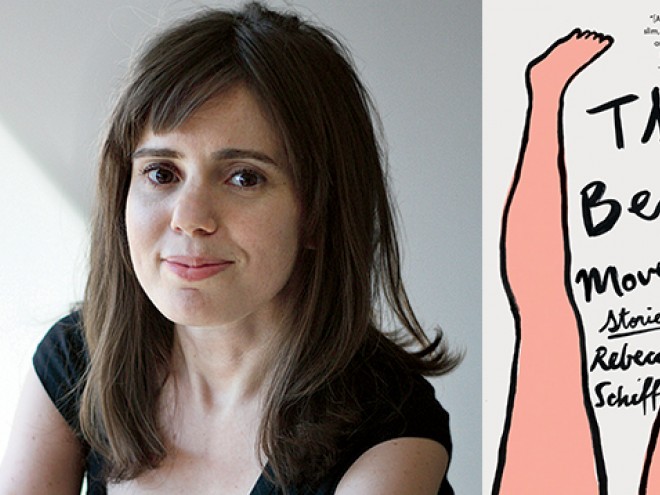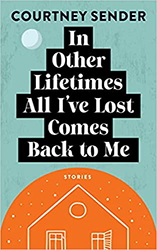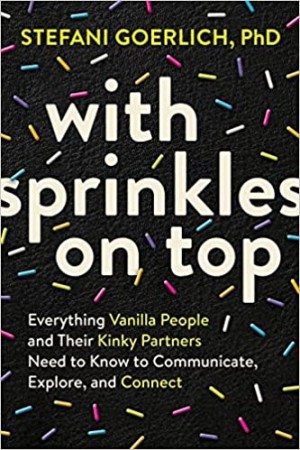Arlene Heyman’s Scary Old Sex and Rebecca Schiff’s The Bed Moved are curiously similar: both are short story debuts, both use sex as a microcosm of human behavior, and both collections feature a story about cancer and a story about September 11th. They are also, of course, both by Jewish women, although of different generations. Sex and death circle around each other in these stories with such unrelenting pressure that there’s little room for any other kind of experience.
Schiff’s work has been labeled “Slut Lit” by some reviewers — divisive yes, but by no means necessarily insulting. Many women write about sex, but “Slut Lit” seems to be about women having sex that is detached, impersonal, and maybe a little bit sad. That there needs to be a separate genre for this kind of writing suggests that female sexual ambivalence is strange and surprising instead of a normal aspect of adult sexuality. That is what makes the “Slut Lit” label tiresome instead of revolutionary; there will never be a separate category of books by men examining the curious concept of emotional intimacy as it relates to male sexuality.
All of that said, “slut” does not have to be such a terrible word. It could conjure an unapologetic woman who’s in touch with her desires. Heyman’s cadre of older women is certainly slutty by that definition, yet the genre hasn’t claimed her. Perhaps the idea of older women in possession of a sex drive is too much to stomach for even the most slut-friendly reviewer.
Where Heyman’s female characters are demanding and irritable, Schiff’s are laconic and ambivalent. They represent an age gap in sluttiness. Heyman writes about physical encounters frustrated by the mundanity (or even grotesquerie) of aging, while Schiff writes about complex, emotional emptiness stemming from amounts and types of sex that Heyman’s generation was hardly allowed to put down in writing when they were young.
It is too bad, then, that most of the characters in both collections are difficult to invest in. Both authors’ observations are keen and funny, but both cut too close to what they already know: Schiff’s characters are often surprisingly self-interested and grate in their youthful expectancy, while Heyman’s are mostly melodramatic and make you want to roll your eyes at their obstinacy.
Schiff’s stories feel like anecdotes from a single, white, middle-class life, rather than a multiplicity of voices and experiences. The entire collection might as well be about the same person, and is begging for the deeper investment of a novel and the chance to grow. Schiff is most successful with younger characters who are every bit as wry and biting as their older peers, recognizing the empty tradeoffs they are expected to make as they mature. “I’m in high school,” says one girl. “I don’t have sex. I don’t have anything.” That line might be the rage at the heart of “Slut Lit”: without sex, you have no power, and with it you sometimes have even less.
Heyman’s explorations of the petty and the dull are promising, but her hyper-observant style relies too much on explanation and leaves little room for feeling. It is also hard to tell if the often insufferable attitudes on display are meant to be ironic. Heyman is at her best when she embraces empathy in “Dancing,” a story that’s probably the least about sex and the most about death in the entire collection.
Despite their shortcomings, both of these collections successfully break taboos around sexuality. Schiff treads rare emotional ground in writing about female sexual ambivalence; Heyman plunges into largely uncharted territory with her sexual narratives of older women. Schiff’s characters, who have what they don’t really want, and Heyman’s, who don’t really want what they have, deserve to be listened to. Hopefully we are on the edge of a “Slut Lit” typhoon, and these voices will only become more diversified and complex.
Related Content:
- Rachel Shukert: Rachel Shukert: Zionist Secret Agent
- Miriam Libicki: Egged Bus Life
- Josh Lambert: Can We Print “Motherfucker” Here?
Meet Sami Rohr Prize Finalist Rebecca Schiff
Jewish Book Council is proud to introduce readers to the five emerging fiction authors named as finalists for the 2017 Sami Rohr Prize for Jewish Literature. Today, we invite you to learn more about Rebecca Schiff and her book, The Bed Moved, a collection of twenty-three short stories about the experiences of women.
A warm congratulations to Adam and the other four finalists: Paul Goldberg, Idra Novey, Adam Ehrlich Sachs, and Daniel Torday. Join Jewish Book Council on May 3, 2017 at The Jewish Museum for a discussion with the authors and announcement of the recipient of the $100,000 Sami Rohr Prize for Jewish Literature! Register for free tickets here »
What are some of the most challenging things about writing fiction?
The most challenging thing about writing fiction is facing the fact that sometimes – often – you’re going to write badly. The challenge is to trust that the good stuff is going to come.
What or who has been your inspiration for writing fiction?
Most of my inspiration for writing fiction has been the work of authors I admire, authors who take risks, who are hilarious and strange. Their books make me want to write fiction.
Who is your intended audience?
A teacher I had told us to “Write for the smart people.” I take that to mean you should trust your audience to get what you’re doing. But the intended audience is a projection, a fantasy. Any person can pick up your book. Some of them are going to hate its guts.
Are you working on anything new right now?
I’m working on new stories.
What are you reading now?
I’m reading 10:04 by Ben Lerner (a previous Sami Rohr finalist) and Assisted Living by Gary Lutz.
Oy, I feel bad about everything I’m leaving out, but here goes:
Birds of America by Lorrie Moore
I Would Have Saved Them If I Could by Leonard Michaels
Venus Drive by Sam Lipsyte
Lolita by Vladimir Nabokov
What We Talk About When We Talk About Love by Raymond Carver
When did you decide to be a writer? Where were you?
I was in third grade when I first decided to be a writer. Our teacher had us hand in a new short story every two weeks. Deadlines are always helpful. I also remember revising one of my stories after school in my parents’ bedroom. It was the first time I noticed that I cared about sentences.
What is the mountaintop for you — how do you define success?
I first thought this was a question about my favorite mountaintop. There are so many great ones! But writing-wise, if I get to keep publishing the books I write, that is success.
How do you write —what is your private modus operandi? What talismans, rituals, props do you use to assist you?
I know people have hats and wristbands and coffee and routines. I don’t really have any of that. I like to write when I first wake up or right before I fall asleep.
What do you want readers to get out of your book?
I want them to feel. And laugh.
Rebecca Schiff graduated from Columbia University’s MFA program, where she received a Henfield Prize. Her stories have appeared in n+1, Electric Literature, The American Reader, Fence, and Guernica. She lives in Brooklyn.
Related Content:
- Nicole Loeffler-Gladstone: Hopefully We’re on the Edge of a “Slut Lit” Typhoon
- Matthue Roth: How to Write About Moving a Mountain
- Goldie Goldbloom: “I’m Just Not in the Mood for Normal Behavior”




